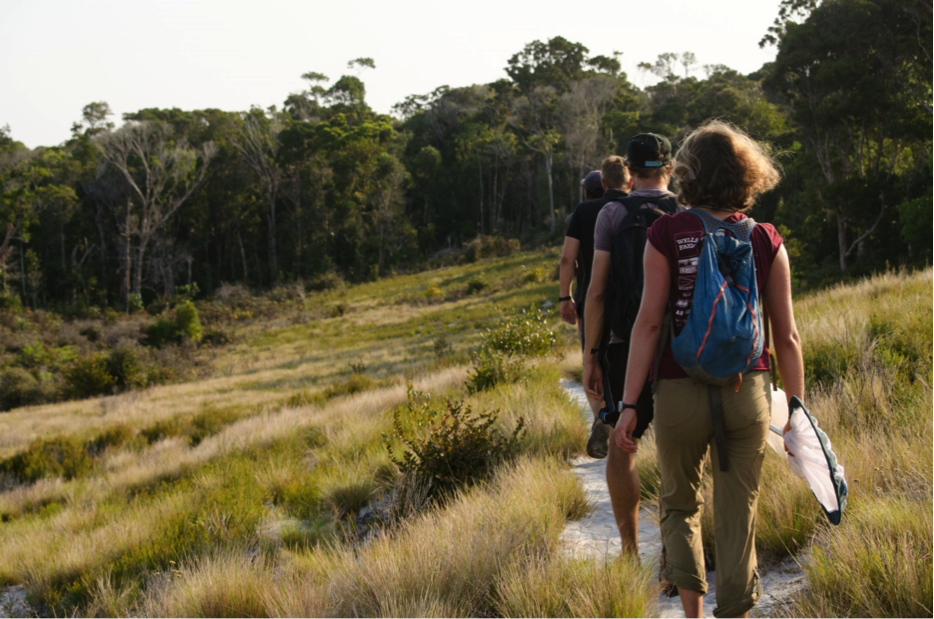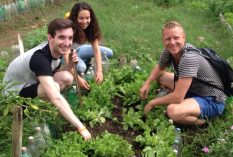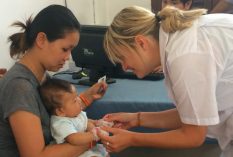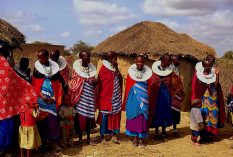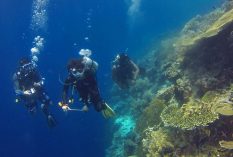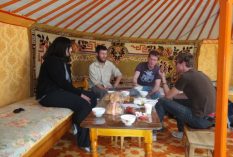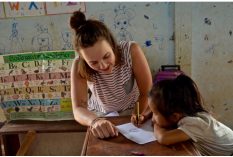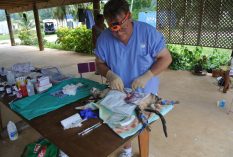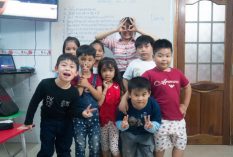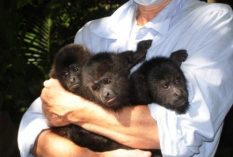Your volunteering activities with SEED Madagascar respond to community identified needs, ensuring your time on the island will have the greatest and most lasting impact. Your volunteer placement will allow you to dive in and work hands-on, directly supporting projects specifically designed to help build the capacity and resilience of communities and their environments. SEED’s initiatives are led by our teams of local Malagasy experts and take a holistic approach, so that projects benefit the community and surrounding environment in multiple different ways.
SEED works across four areas: Conservation, Education, Sustainable Livelihoods and Community Health, responding to the hardships faced by the people and their environment in the island’s remote southeast Anosy region. This region is renowned for its rich biodiversity, however it is faced with extreme isolation and development challenges. Madagascar is one of the world’s least developed countries, ranking 155/187 in the 2013 UNDP Human Development Index. Furthermore, the unique wildlife and plant life are under intense threat, with deforestation occurring at an alarming rate. But with your time, hard work, and support, we can work together towards our vision of a Madagascar of thriving ecosystems and communities, making life better for those in Anosy and across the island.
SEED Madagascar has a number of unique and challenging volunteer placements in Madagascar. Whether your passion is sustainable community development or vital conservation work, your experience will be unforgettable and rewarding, whilst supporting change that is both impactful and sustainable.
Community Construction
Pioneers and construction volunteers, who are not afraid of hard work, can improve school education in the region with Project Sekoly, our school building project. Many classrooms in schools in the area are crowded and oversubscribed, with some children only receiving half a day of schooling due to lack of space. Project Sekoly responds to direct requests for assistance from the communities who want to improve the future for their children through education. Prior to starting any new school construction project, SEED conducts a needs assessment ensuring that certain criteria are respected, including teacher availability in the district, on site safety and levels of motivation within the community.
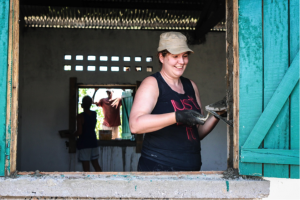 Since its start in 2005, and with the crucial help of pioneer and construction volunteers: laying bricks, mixing concrete and painting and decorating, Project Sekoly has successfully completed 35 new classrooms for students in need, and two more classrooms will be completed in 2017! In 2016 alone, Sekoly was able to create a safe learning environment for 240 students. SEED’s school building projects don’t just enable life-changing opportunities for students, but for the whole community! All of our construction projects also use local labour alongside our intrepid teams of international volunteers. This offers local communities important livelihood earning opportunities, but also offers skills training for labourers in these communities. Many who start work with the SEED team begin as untrained manual labour, but learn important skilled trades from SEED’s Malagasy construction team. Many of these labour team alumni take their new skills and go on to find full time work in trades such as masonry! Pioneers also have the chance to live alongside local communities, including conducting English lessons for motivated students in the communities where they have been living and building.
Since its start in 2005, and with the crucial help of pioneer and construction volunteers: laying bricks, mixing concrete and painting and decorating, Project Sekoly has successfully completed 35 new classrooms for students in need, and two more classrooms will be completed in 2017! In 2016 alone, Sekoly was able to create a safe learning environment for 240 students. SEED’s school building projects don’t just enable life-changing opportunities for students, but for the whole community! All of our construction projects also use local labour alongside our intrepid teams of international volunteers. This offers local communities important livelihood earning opportunities, but also offers skills training for labourers in these communities. Many who start work with the SEED team begin as untrained manual labour, but learn important skilled trades from SEED’s Malagasy construction team. Many of these labour team alumni take their new skills and go on to find full time work in trades such as masonry! Pioneers also have the chance to live alongside local communities, including conducting English lessons for motivated students in the communities where they have been living and building.
Pioneers will also have the opportunity to work and create impact across all departments, and will also have the opportunity to work with our Conservation team on the SEED Conservation Programme!
Conservation
The SEED Conservation Volunteering Programme is ideal for volunteers looking to make a difference in protecting Madagascar’s unique and endemic flora and 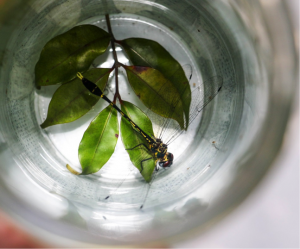 fauna. The Conservation Programme’s camp is situated amongst the southern littoral forest fragments of Sainte Luce. The southern littoral forest is one of Madagascar’s most threatened ecosystems, covering just 1,143 ha of isolated diminishing fragments; it is predicted that over the next 60 years a further 80% will be lost (Temple et al, 2012). The fragments are home to numerous endemic species including Phelsuma antanosy, a critically endangered endemic gecko and Pseudoxyrhopus kely, an endangered endemic snake (IUCN Red List, 2011). The SEED Madagascar Conservation Programme (SCP) leads conservation projects and research to increase local understanding of this unique biodiversity, promote long-term ecotourism prospects in the region, and preserve these endangered natural habitats. Despite being a threatened ecosystem home to endemic and critically endangered creatures, the littoral forests of Sainte Luce remain under-researched and exist under long-term threats from international mining interests. By living and working alongside our team in a remote research camp in Sainte Luce, you’ll be helping contribute to scientific knowledge on endemic, threatened or potentially lost species. In 2016, SEED volunteers and staff successfully rediscovered a species of dragonfly not seen for over 110 years, of which there is only one other known museum specimen!
fauna. The Conservation Programme’s camp is situated amongst the southern littoral forest fragments of Sainte Luce. The southern littoral forest is one of Madagascar’s most threatened ecosystems, covering just 1,143 ha of isolated diminishing fragments; it is predicted that over the next 60 years a further 80% will be lost (Temple et al, 2012). The fragments are home to numerous endemic species including Phelsuma antanosy, a critically endangered endemic gecko and Pseudoxyrhopus kely, an endangered endemic snake (IUCN Red List, 2011). The SEED Madagascar Conservation Programme (SCP) leads conservation projects and research to increase local understanding of this unique biodiversity, promote long-term ecotourism prospects in the region, and preserve these endangered natural habitats. Despite being a threatened ecosystem home to endemic and critically endangered creatures, the littoral forests of Sainte Luce remain under-researched and exist under long-term threats from international mining interests. By living and working alongside our team in a remote research camp in Sainte Luce, you’ll be helping contribute to scientific knowledge on endemic, threatened or potentially lost species. In 2016, SEED volunteers and staff successfully rediscovered a species of dragonfly not seen for over 110 years, of which there is only one other known museum specimen!
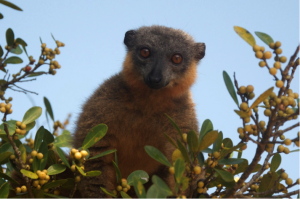 All of SCP surveys are led by both local guides and our Malagasy staff, and through the paying of local ecotourism fees, SEED helps financially contribute to communities to compensate for their sharing of their fascinating forests.
All of SCP surveys are led by both local guides and our Malagasy staff, and through the paying of local ecotourism fees, SEED helps financially contribute to communities to compensate for their sharing of their fascinating forests.
Madagascar’s loveable but threatened lemurs are a particular area of focus for the SCP. The programme has been working with endangered species of lemur since 2007 and has recently concluded a five year population density and spatial distribution study for all four species of lemur in the Sainte Luce littoral forest. This research will support updating the current IUCN Red List status of the Sainte Luce lemur species. Important food resources and native tree species important for lemur survival have also been identified for the brown collared lemur, highlighting the tree species that the practical conservation elements of the SCP will focus on in their crucial nursery work.
Away from comprehensive research on creatures both big and small, the SCP conducts weekly environmental 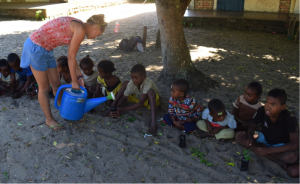 education sessions at two schools in Sainte Luce. These classes provide free education to youths on key environmental and conservation issues, such as threats to the forest, the benefits of pollinators and animals that disperse seeds, and basic sustainable agricultural techniques. Not only are these sessions informative, but they are also a lot of fun, as lessons are communicated via fun songs and games! Volunteers will also have time to share their English language skills with motivated community members in weekly English classes in the nearby village.
education sessions at two schools in Sainte Luce. These classes provide free education to youths on key environmental and conservation issues, such as threats to the forest, the benefits of pollinators and animals that disperse seeds, and basic sustainable agricultural techniques. Not only are these sessions informative, but they are also a lot of fun, as lessons are communicated via fun songs and games! Volunteers will also have time to share their English language skills with motivated community members in weekly English classes in the nearby village.
English Teaching
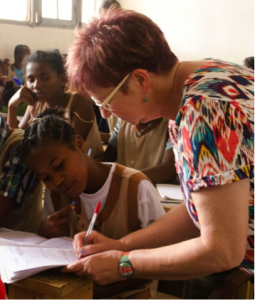 SEED also offers unique bespoke placements in our English Teaching Department. By introducing English language skills to the community, you will provide students both young and old with more earning opportunities. These livelihood options exist across sectors, including in the high value and unique ecotourism industry in Madagascar. SEED’s volunteers have developed new and innovative English teaching resources designed to help support students complete their school exams, provided invaluable lesson planning and team teaching support to Fort Dauphin’s English teachers, and supported the local museum in developing English language resources. Like all of our programmes our English teaching is based on need and motivation, ensuring highest impact. SEED’s English teachers also provide a vital link in supporting all of the work that SEED does, by supporting SEED’s Malagasy team members through one on one English lessons. By enhancing their English language skills, you’ll be helping learning, knowledge sharing and information dissemination across the entirety of the organisation, as well as at an international level.
SEED also offers unique bespoke placements in our English Teaching Department. By introducing English language skills to the community, you will provide students both young and old with more earning opportunities. These livelihood options exist across sectors, including in the high value and unique ecotourism industry in Madagascar. SEED’s volunteers have developed new and innovative English teaching resources designed to help support students complete their school exams, provided invaluable lesson planning and team teaching support to Fort Dauphin’s English teachers, and supported the local museum in developing English language resources. Like all of our programmes our English teaching is based on need and motivation, ensuring highest impact. SEED’s English teachers also provide a vital link in supporting all of the work that SEED does, by supporting SEED’s Malagasy team members through one on one English lessons. By enhancing their English language skills, you’ll be helping learning, knowledge sharing and information dissemination across the entirety of the organisation, as well as at an international level.
No matter what your interests may be, your hard work with SEED will contribute to a long and exciting history of making real sustainable change for the people and environments of the Anosy region!
Does this peak your interest, would you like to get involved? Me too! Check out the project details for the Sustainable Development, Conservation, Education & Construction Project in Madagascar and make an impact in Madagascar!

